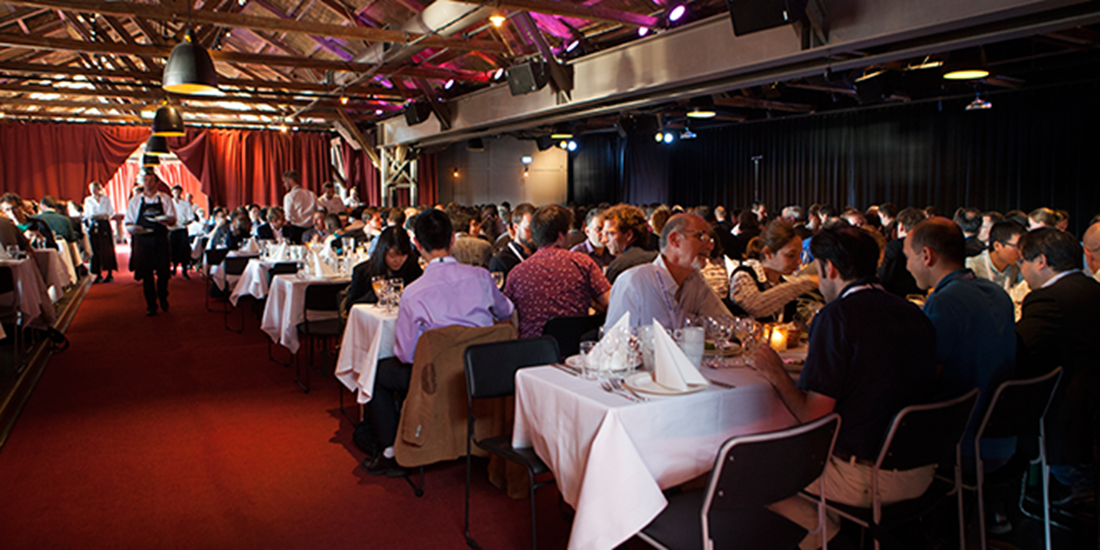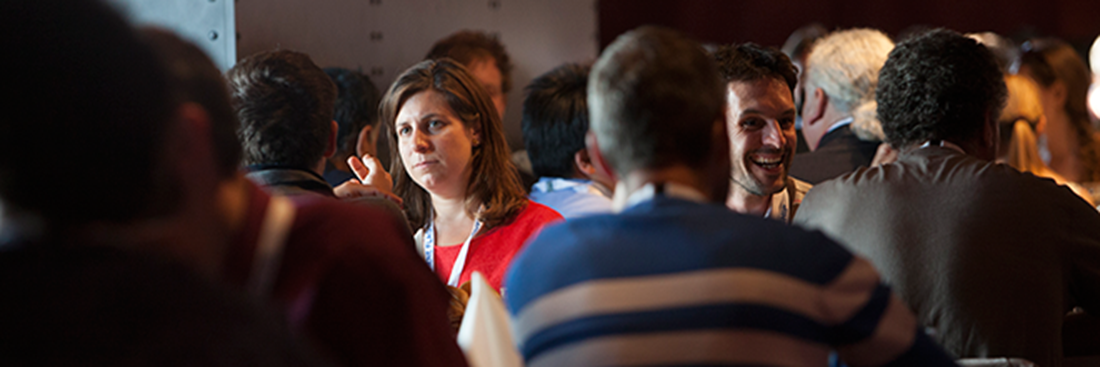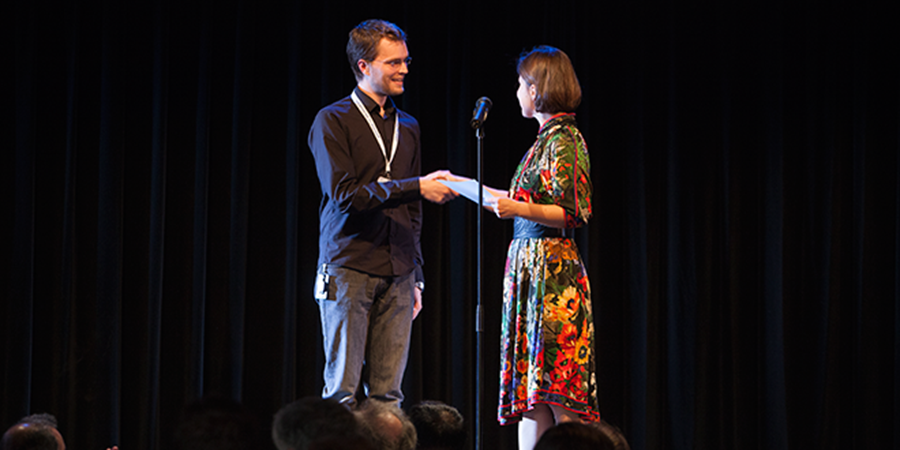Scientific contribution rewarded
Sandra Šopić, Johannes Jobst, André Dankert, and Zhenyuan Xia were the four individuals who produced the best posters, chosen from more than 400 posters presented over four afternoons during Graphene Week 2014.
The winners were selected by the Conference Programme Committee and a number of independent referees for their scientific contribution and clarity of presentation. Each poster session winner received a prize of €300, sponsored by the science journals EPL and AIP.
The day started off in the morning with a presentation by Di Wei from Nokia UK on graphene for energy solutions, in which he provided valuable insight into how graphene could be highly useful as a robust material in batteries.
Di Wei from Nokia Research
Graphene not always suitable
Next up was Peter Steeneken from NXP Semiconductors and Delft University of Technology, who talked about graphene-based sensors for the semiconductor industry. In the future, he said, a mobile phone could have more than 50 sensors and a home more than 500 sensors – but not all are fit to be graphene-based. Accelerometers, for example, need high mass, and graphene is not particularly suitable as it is such a light material. Instead, the potential of graphene lies in magnetic, pressure and humidity sensors.
Maurizio Prato about health and environment
Frank Koppens – group leader at ICFO
Andrea Ferrari about graphene and optoelectronics
Just before the first coffee and networking break, Georg S. Duesberg from Trinity College Dublin talked about functional electrodes and showed pictures from He-Ion microscopy and other interesting areas.
Georg S. Duesberg from Trinity College Dublin
Lain-Jong Li from Academia Sinica
Looking ahead to next year

After a full day with some 30 presentations and a poster session – again with around 100 posters – all the participants headed for the restaurant Kajskjul 8, located in the Gothenburg harbour. There were excellent networking opportunities, as well as a ceremony during which Jari Kinaret, Director of the Graphene Flagship introduced next year’s conference chair Cinzia Casiraghi from University of Manchester. Another particular highlight of the evening was the poster award ceremony, where four winners each received €300.
Martina Wanke at the poster session
Alexandre Merkulov from Cameca

Wide range of subjects
Interplay between microscopic decoherence and superconducting proximity effect; Utilising Graphene’s Quantum Interference in LEEM; MoS2 Field Effect Transistors with Ferromagnetic Tunnel Contacts, and 3D Fe2O3-graphene foam. These were the poster subjects for which Sandra Šopić from the University of Geneva, Johannes Jobst from Leiden University, André Dankert from Chalmers University of Technology, and Zhenyuan Xia from ISOF-CNR in Bologna, received their prizes.
André Dankert – poster winner from Chalmers
Sandra Šopić – poster winner from Genève
Johannes Jobst – poster winner from Leiden
The Graphene Week Conference is taking place at Chalmers University of Technology on 23 – 27 June. For the latest updates, follow us on http://twitter.com/GrapheneCA
Photo: Chalmers / Henrik Sandsjö
Here are some videos and pictures from the fourth day of Graphene Week 2014:
André Dankert – poster winner from Chalmers
Sandra Šopić – poster winner from Genève
Johannes Jobst – poster winner from Leiden
Klaus von Klitzing about graphene
Lain-Jong Li from Academia Sinica
Georg S. Duesberg from Trinity College Dublin
Di Wei from Nokia Research
Martina Wanke at the poster session
Alexandre Merkulov from Cameca
Maurizio Prato about health and environment
Frank Koppens – group leader at ICFO
Andrea Ferrari about graphene and optoelectronics





